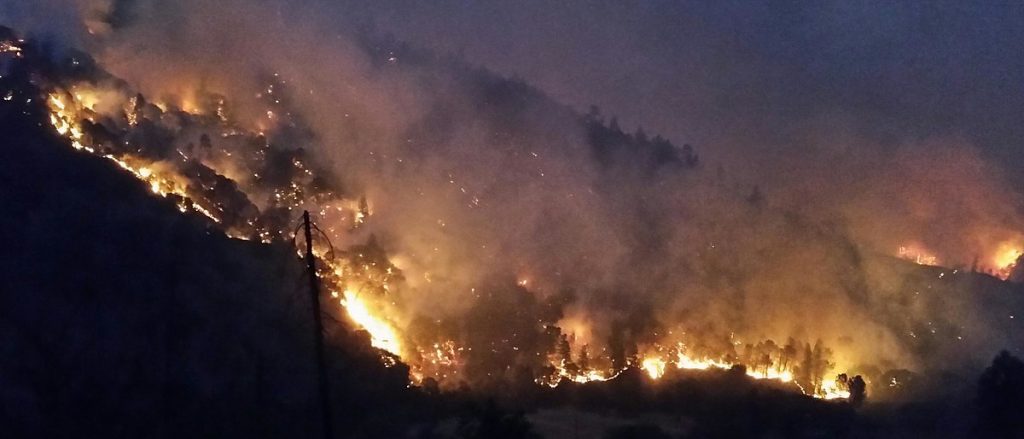Fueling Future Research
We’ve provided $3.2 million in direct support to scientists for their research studies, an effort that has leveraged more than $9.5 million in additional research funding from external agencies and foundations to scientists affiliated with the Center.
By providing critical seed funding to help scientists advance their ideas, we fuel their future research—and create positive change in the world. The work our scientists undertake as Fellows, as affiliated researchers, or with funding from our partners often results in data and analyses that form the basis of successful proposals to external funding agencies and foundations.

During a 2017 conference co-organized by Climate and Life Fellow Park Williams, scientists pinpointed areas where advances in fire prediction can be made within the next decade. (Photo: U.S. Forest Service)
In addition to providing funding for research, we work to foster a collaborative environment for interdisciplinary scientists at Columbia University by hosting scientific symposia and co-sponsoring meetings to identify promising areas of investigation.
Here are a few of these success stories.
Laia Andreu-Hayles was awarded two grants from the National Science Foundation and one from the BNP-Paribas Foundation as a result of the work she’s doing as a Fellow. The new funding will enable Andreu-Hayles to continue studying study the interactions between climate variability, forests, and the environment in South America, provide educational opportunities to students, and increase awareness of future risks associated with climate change across the Americas.
Park Williams was awarded $6 million in grants from NASA and the National Science Foundation to study the influence of climate change on droughts and wildfires. Williams also received funds to support a Ph.D. student for three years and host a conference on improving tools for predicting wildfires; additional support for this was provided by the Center for Climate and Life.
“The Climate and Life funding model allowed us to develop a new research direction out of an early idea and make big steps forward.”
Richard Seager received funding from our partnership with the World Surf League and used it to do beginning analyses that were included in a National Science Foundation proposal. This demonstrated that the proposed work was feasible and led to the decision to fund the project.
Now Seager has papers published or submitted that examine the connection of the California drought to tropical ocean temperatures and that link human-driven climate change with the long term changes in the tropical oceans that are making such extremes more likely.
“The Climate and Life funding model allowed us to develop a new research direction out of an early idea and make big steps forward,” Seager said.
Michael Puma secured a grant from the Department of Defense using research he conducted with funding from the Center for Climate and Life. This five-year project will examine the interdependence between human migration and environmental changes; the results will be used to create successful prevention and intervention plans. Puma also received funding from Columbia University to research food security as part of a Columbia World Project that’s addressing the climate threats to food and nutrition in six countries across the globe.

